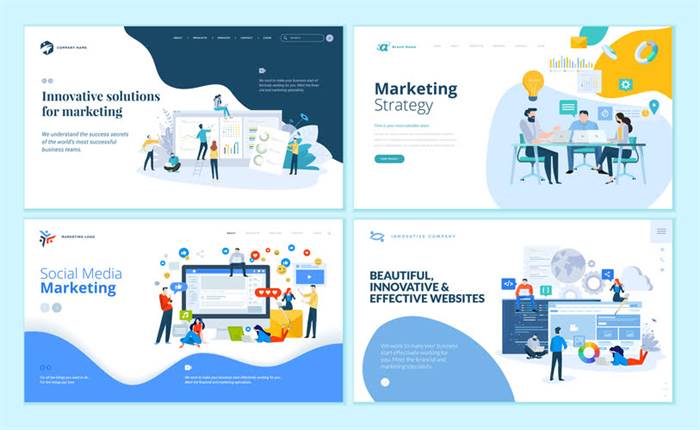Content
Imagine that you must make a phone call on the go, send a quick email to a lead, or just find some information about a contact when you are not at the office. Cloud based CRM allows you to have access to the system anywhere, anytime and from any device, whether it’s a smartphone, laptop or tablet. So, by always having access to data, cloud based CRM enables you to do everything you need at every moment. With customer relationship management, marketing and sales work better together to drive sales and increase revenue. When sales and marketing are in sync, sales productivity goes up along with marketing ROI. Customer relationship management helps you find new customers, sell to them, and develop a loyal customer relationship with them.

Modern CRMs come in a variety of packages, with a multitude of services and capabilities that offer benefits to businesses of all shapes and sizes. One option is a cloud-based CRMbecause this package offers a number of functionalities needed to remain competitive with the latest features and technology. According to Gartner, which is the world’s leading information technology research and advisory company, about 48% of the companies surveyed are going to move to cloud based CRM software in the next 3 years. Though cloud based CRM has many advantages that can put your company in a better position, it doesn’t necessarily mean it’s applicable for everyone. Thanks to the development of internet infrastructure, companies are now rarely housed in a single office. Rather than being the exception, remote work is quickly becoming the new norm. Another consequence of the decentralized nature of modern work is that many on-site CRM solutions became obsolete.
Why Should You Choose A Vendor For Your Crm Solution?
Keeping customer data on your own servers, and running on-site CRM might seem like a safe choice at the outset, but upon further inspection, you will find that this is not the case. Unless you have a cybersecurity division within your company, your servers will be vulnerable to hackers. In contrast, cloud CRM solutions store data on secure servers Requirements engineering across the globe. Cloud CRM providers will also create backups of your data, so even in the event of a compromise, you can easily rebuild your customer database from scratch. The role of analytical CRM systems is to analyze customer data collected through multiple sources and present it so that business managers can make more informed decisions.
This means your IT department has to spend a lot of time and resources implementing and managing the system. So it will help Every business owner who wants to know at a glance how things are going.
CRM helps organizations be more effective and efficient in their day-to-day tasks and assists them in reaching long-term business objectives and goals. Mobility is an area which must be covered by all CRM software and glad to know you have mentioned it, The accessibility must be there to provide better and user friendly software. A former linguist, PR specialist, journalist and editor, Zarema Plaksij now works as an editor and contributing copywriter in SuperOffice. Keen on creating engaging content for the company’s existing and future customers, Zarema is ‘head over heels’ for digital content marketing and brand journalism. Make sure that the vendor offers a flexible Cloud solution that is able to grow with you as your business grows, and that the solution is tailored to your needs in terms of functionality. However, as your company grows, you may decide that you need, for example, more capacity, new features or more advanced modules.
Embrace The Cloud
Have you ever stopped to think that perhaps the cloud and your CRM software can intersect and interact in a major way? It turns out, they can, and it’s an area cost reduction strategies business known as cloud-based customer relationship management software or cloud-based CRM. 24 hour accessibility is probably the biggest advantage of cloud based CRM.
Cloud vs. on-premise solutions – advantages and disadvantages – MoreThanDigital – MoreThanDigital English
Cloud vs. on-premise solutions – advantages and disadvantages – MoreThanDigital.
Posted: Tue, 31 Aug 2021 07:00:00 GMT [source]
There are issues relating to differences in file formats, drivers, system requirements, as well as issues with feature overlap. Cloud-based CRM can’t solve this problem as such, but since they are built with integration in mind, they won’t contribute to the difficulty either. They can even replace some of your other apps since they come with a variety of useful features. One of the main reasons why businesses are apprehensive about experimenting with new software is fear concerning setup difficulties. The reasoning here is sound – why would you want to invest in an application that is more difficult to use than the one you’re currently using?
Being on-premise also means that the CRM can integrate with current systems. Take some time to consider whether or not the CRM software is suitable for your business. If it is what you need, then you should contact an unbiased and independent software provider to ensure the smooth transition into a different phase of your business growth.
Small Service Cost
Select your dream CRM platform and make the secure switch with Trujay. The most prominent benefit of having a CRM on a cloud is that different encryption methods secure the data. Cloud hosting companies have dedicated security experts who use modern encryption systems to keep the CRM secure.

This way, you avoid any discrepancies caused between some people running an older version of the software and others newer. On your end, though, upgrading generally requires very little effort. Yes, you might have to send out a company-wide email to remind everyone to upgrade their CRM systems. You could even start the download during your lunch break, eat, and then come back, hit a few buttons, and boom, you’re all set.
more And More Technologies Geared Towards The Smaller Businesses
Also, there are no hidden costs like buying additional hardware or licenses fees. What you pay is a set monthly fee for a Cloud CRM package, which can be as low as €37. Cloud CRM gives you access to the system from anywhere – in the office or if working remotely – on a train, in a café, at home; and on any device – be it a desktop, a laptop, a smartphone, or a tablet. Your colleagues and you can access the centralized database at any time, even outside working hours if need be, which is particularly handy for any modern business. You don’t have to pay for hardware, server and software maintenance. Nor do you need to have a permanent IT person on site, worry about complex installations, data migration, or even upgrades – all this is done remotely for you.
- There are now cloud solutions that are simple to use and easy to navigate without breaking the bank.
- Reports, especially those with insights driven by artificial intelligence, help CRM users like marketers and sales teams know how to work with leads to convert them to opportunities.
- For customer relationship management to be effective, there is a need for centralization to occur.
- These allow us to recognize and count the number of visitors and to see how visitors move around our Site.
- Open source CRM systems also enable the addition and customization of data links on social media channels, assisting companies looking to improve social CRM practices.
- Hopefully, over time, you’ll become more comfortable with it and able to reap even more cloud computing advantages.
Be prepared to pay for higher levels of support, particularly on evenings or weekends. The on-premise option typically involves buying the license and software to install on the company’s hardware. The company would then be responsible for all maintenance, updates, imports, etc. An example of an on-premise CRM for large companies isMicrosoft Dynamics CRM. The on-premise solution is usually quite a bit more expensive than the cloud based solution. Cost is a major factor for an on-premise CRM, which is why it’s typically targeted for larger businesses.
Have A Certain Number Of People To Have Access To The Cloud
Also, sophisticated AI-based technology—to support virtual assistants, chatbots, next-best recommendations, and predictive analytics—will not be available. You may have fewer servers to handle which means less for your IT staff to handle, but that doesn’t mean you can let go of all your servers and staff. While it may seem costly to have data centers and a cloud infrastructure, redundancy is key for backup and recovery.

When creating a secure password, make sure you create one that is strong and easy enough to remember the next time you log in. Synoptek is a Global Systems Integrator and Managed IT Services Provider, offering comprehensive IT Management and Consultancy Services to organizations worldwide. We work in partnership with clients of all sizes – from mid-market to Fortune while helping them strengthen their IT foundation, manage risk and compliance, and enhance competitive position.
Contact us today to discover how Synoptek can get you started. David believes in the importance of good planning, sound practice, effective communication, and continued education in order to get the most from any technology solution.
There are many benefits that go along with cloud-based software. One great example would be how every piece of data can be accessible to employees. There are operating systems and apps out there that are not compatible with other systems. This is due to data management, which can be a bit of a concern. If you have business requirements that include regularly downloading large amounts of data from your cloud applications or data storage, then there will be additional costs that can add up. Just as any type of software would, having detailed reports and analytics of your market sales is another crucial essential to have in a business. With cloud-based CRMs, the inclusion of detailed reports and analytics can immensely assist companies with marketing sales.
More importantly, every department can now deliver consistent, personalized interactions in the best interest of customers. To better understand its technical aspects, cloud computing processes can be divided into frontend and backend. The frontend component allows users to access data and programs stored in the cloud through an internet browser or by using a cloud computing application. The backend consists of servers, computers and databases that store the data. Companies may struggle to achieve a single view of the customer if their data sets are not connected and organized in a single dashboard or interface.
